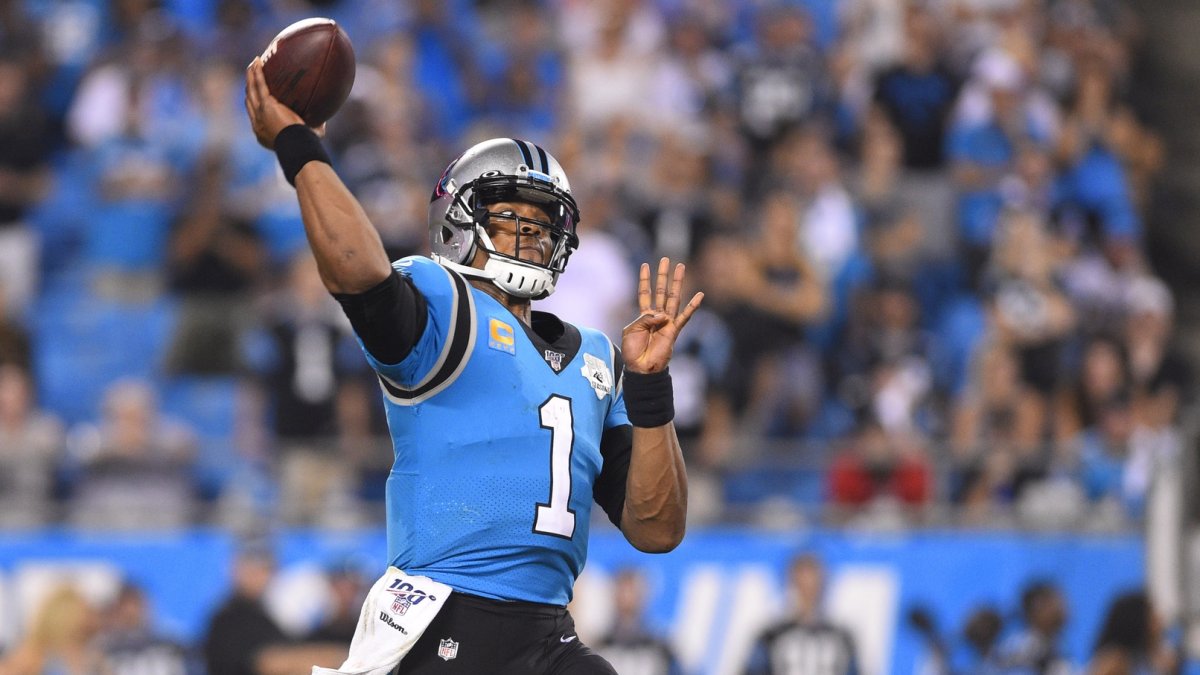Cam Newton is one of the league’s most enigmatic quarterbacks. With an MVP season under his belt — and all the physical tools anybody could ask for — he seems like a perfect cornerstone around which to build a franchise. So why are the Carolina Panthers potentially listening to trade offers and looking to sacrifice him as part of the organization’s rebuilding project?
The first and most obvious point is his health. Newton is battling back from the latest in a list of injuries, and his long-term durability is a question mark. Newton missed 14 games last season, but before that he had missed just three over the previous three seasons. The issue, however, is not injuries forcing him to miss games as much as forcing him to play hurt — and play significantly worse — while battling through the pain.
There is no doubting Newton’s toughness, and the fact that he has battled injuries in recent years is really not up for debate.
The second consideration is that he is entering the final year of his contract. The Panthers would be facing a big decision when it comes to Newton's future with the franchise whether health was a concern or not.
Newton is an athletic freak and has been one of the most spectacular playmakers in the league since the moment he came to the NFL, but how good he is overall has always been debatable. His ceiling is MVP-level, as we saw in 2015 when he put together his best season and took the Panthers to the Super Bowl. But that season is looking more and more like a complete outlier — that's not the player you can realistically expect Newton to be even if he is healthy. His overall PFF grade during that MVP season was 86.5, but that’s more than 10 grading points higher than any other season of his career.
Even in conventional stat terms, Newton's 2015 season is a significant departure from his baseline. He threw 13 more touchdowns that year than any other and actually cut down on the number of interceptions he typically throws in a season. It also represents a career-high in passing yards by more than 500, and he scored 12 rushing touchdowns, which is his second-best total to his rookie year.
The Panthers have always struggled to maximize Newton’s potential and only really succeeded in that 2015 season. For all the ability he has, Newton is not a conventional NFL quarterback. He will never be the most accurate passer in the league, but he has abilities that offset the down-to-down inaccuracy. Only once in his career has he posted a completion rate of over 65% for a full season, a figure 14 different quarterbacks eclipsed in 2019 alone. Newton has seven seasons where he has failed to even clear more than 60%, and the highest he has ever ranked in adjusted completion rate is ninth, one spot below Nick Mullens in 2018.
Carolina recognized from the outset that this was an issue and has employed several different strategies to mitigate the problem. First, they worked at assembling a group of large receivers — like Kelvin Benjamin — with the size to increase the catch radius of Newton’s targets and improve his efficiency. The problem with this plan is that big receivers like that don’t get open often, so you force your quarterback into more tight-window throws than you did before. It can actually have the opposite effect to the one you intended. In Benjamin’s best season statistically, Newton had an adjusted completion percentage of just 66.7%, which ranked 40th out of 42 passers — lower than even Jake Locker.
Exclusive content for premium subscribers

WANT TO KEEP READING?
Dominate Fantasy Football & Betting with AI-Powered Data & Tools Trusted By All 32 Teams
Already have a subscription? Log in



 © 2025 PFF - all rights reserved.
© 2025 PFF - all rights reserved.